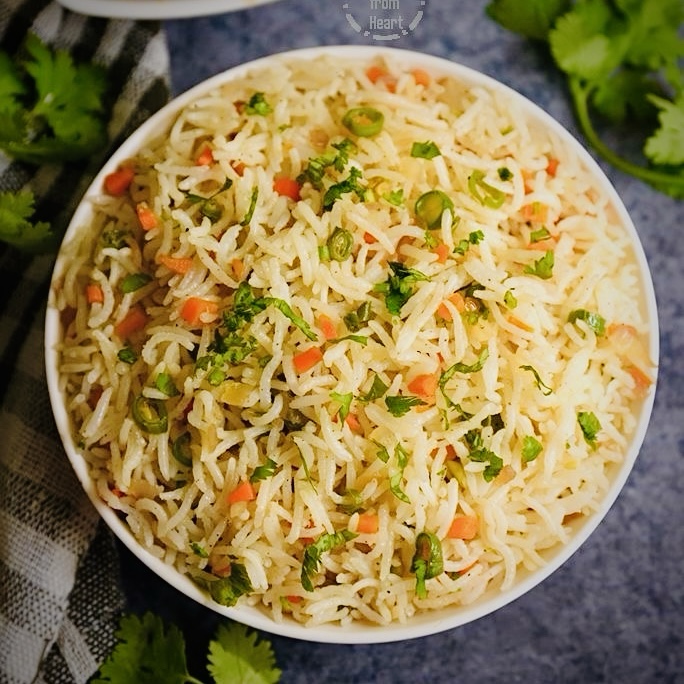Introduction:
Reheating food is a common practice in households worldwide, often seen as a convenient way to enjoy leftovers or save time in meal preparation. However, not all foods respond well to reheating, and in some cases, doing so can pose health risks. Understanding which foods to avoid reheating and why is crucial for maintaining food safety and enjoying meals without compromising taste or health. In this article, we’ll delve into five food items that should never be reheated and explore the scientific reasons behind this advice. By learning about these foods, you’ll be better equipped to make informed decisions in your kitchen and prioritize food safety for yourself and your loved ones.
1. Rice
Rice is a staple food in many cuisines around the world, but it’s also one of the riskiest foods to reheat. When cooked, rice can contain spores of Bacillus cereus, a bacterium that can survive cooking. If left at room temperature for too long, these spores can multiply and produce toxins that are resistant to high temperatures. Reheating rice doesn’t always destroy these toxins, which can lead to food poisoning.

To avoid the risk of food poisoning, it’s best to consume rice immediately after cooking and to store any leftovers in the refrigerator within two hours. If you do have leftover rice, it’s safer to eat it cold in a salad or stir-fry rather than reheating it.
2. Potatoes
Potatoes are a versatile and delicious ingredient, but reheating cooked potatoes can be problematic. When potatoes are cooked and then left at room temperature, they can become a breeding ground for Clostridium botulinum, the bacterium responsible for botulism. This bacterium thrives in low-oxygen environments, such as sealed containers or foil-wrapped potatoes.

To reduce the risk of botulism, it’s crucial to store cooked potatoes in the refrigerator promptly. However, even refrigerated potatoes can pose a risk if not reheated properly. If you must reheat potatoes, make sure to heat them thoroughly at a high temperature to kill any bacteria present.
3. Chicken
Chicken is a popular protein choice for many meals, but reheating cooked chicken can lead to bacterial growth and foodborne illness. Like other meats, chicken contains proteins that can break down and become toxic when reheated at high temperatures for an extended period. Additionally, chicken can harbor harmful bacteria such as Salmonella and Campylobacter, which are not always destroyed during the initial cooking process.

To minimize the risk of foodborne illness, it’s essential to handle and store chicken properly. Cooked chicken should be refrigerated within two hours of cooking and consumed within a few days. When reheating chicken, ensure that it reaches an internal temperature of at least 165°F (74°C) to kill any bacteria present.
4. Eggs
Eggs are a nutritious and versatile ingredient, but reheating cooked eggs can lead to unpleasant changes in taste and texture. When eggs are reheated, the proteins in the egg whites can become rubbery, and the yolks can become dry and crumbly. Additionally, reheating eggs can increase the risk of bacterial contamination, especially if they have been left at room temperature for an extended period.

5. Tea
To enjoy eggs safely, it’s best to cook them fresh and consume them immediately. If you have leftover cooked eggs, consider incorporating them into dishes that don’t require reheating, such as salads or sandwiches. If you must reheat eggs, do so gently and avoid overheating to prevent them from becoming tough and dry.
Tea is a beloved beverage enjoyed by millions of people worldwide, but reheating brewed tea is not recommended. When tea is reheated, it can become bitter and lose its delicate flavor profile. Additionally, reheating tea can cause the catechins, antioxidants found in tea leaves, to degrade, reducing their health benefits.

To enjoy tea at its best, it’s best to brew only as much as you plan to drink and to consume it promptly. If you have leftover tea, consider pouring it over ice for a refreshing iced tea or using it as a base for cocktails. Avoid reheating tea in the microwave or on the stovetop to preserve its flavor and health benefits.
Conclusion:
Understanding which foods to avoid reheating can help maintain both flavor and safety. By refraining from reheating rice, potatoes, chicken, eggs, and tea, you minimize the risk of bacterial contamination and preserve their taste and nutritional value. Embracing proper food handling practices ensures that you can enjoy your meals with peace of mind and optimal enjoyment.